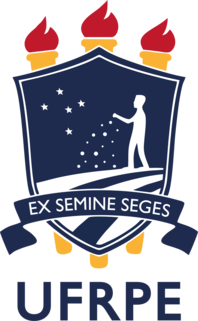The Program
The Graduate Program in Animal Bioscience (PPGBA) was accredited in 2007 by Capes, with a score of 4, to operate at the master's and doctoral levels, and began its academic activities in the first semester of 2008. PPGBA is based in the Department of Animal Morphology and Physiology (DMFA) at the Federal Rural University of Pernambuco (UFRPE) and has a faculty composed of qualified professionals with expertise in various fields, such as Veterinary Medicine, Biological Sciences, Chemistry, Biomedical Sciences, and Mathematics. PPGBA aims to train professionals specialized in the areas of Animal and Environmental Health Morphophysiology and Biotechnology. This is the key differentiator of this program compared to other Veterinary Medicine programs in the northeastern region of the country. In this program, we seek to cover both basic and applied areas, which is why it brings together professionals from different fields of knowledge and attracts professionals from all states in the northeastern region. The research lines are focused on two major areas. The Animal and Environmental Health Morphophysiology area focuses on studying the basic cellular mechanisms and processes of animal science, as well as investigating the mechanisms of action of natural or synthetic compounds in functional and pathological processes; Epidemiology and Pathogenesis of transmissible diseases and the development and standardization of diagnostic techniques for diseases with economic and social impact, in addition to studying the human-animal-environment interaction (One Health). The Biotechnology area is directed towards the development of bioactive products with relevant biological activity in Veterinary and Human Medicine, as well as the study of applied Microbiology and Parasitology.
The concentration area in Animal and Environmental Health Morphophysiology includes the following Research Lines: Basic Cellular Mechanisms and Processes in Animal Science, Mechanisms of Application of Natural or Synthetic Compounds in Functional and Pathological Processes, and One Health. The Biotechnology area includes the following Research Lines: Bioactive Products, and Applied Microbiology and Parasitology. All Research Projects developed in the PPGBA fit into these six Research Lines. The interdisciplinary focus of the program allows access to students from various fields of knowledge (Human Medicine, Veterinary Medicine, Animal Science, Fisheries Engineering, Bachelor's and Teaching Degrees in Biological Sciences and Chemistry, Bachelor's in Biomedical Sciences, Pharmacy, and related fields in Animal Biosciences) who are interested in the study of Basic and Veterinary Sciences, aiming for their application in Veterinary Medicine with prospects for applicability in the field of Human Medicine.
The Graduate Program in Animal Bioscience serves students of Veterinary Medicine and related areas in the Biological Sciences who wish to develop studies aimed at scientific-technological development, innovation, biotechnology, and professional advancement in Animal Science. The program also welcomes students from various regions of the country and abroad. To date, the program has received students from undergraduate research and master's programs at UFRPE, UFPE, UPE, UFAL, UFBA, UEL, and UFMG, as well as professors and technicians from UFPE, UFRPE, UPE, UFCG, UFPB, UFPI, UFRB, UECE, UEMA, UFAL, Federal Institutes, and various other private higher education institutions in Pernambuco and other states across the country.
The senior administration of UFRPE has supported PPGBA by allocating positions for faculty and higher-level technicians, prioritizing the allocation of CT-INFRA/FINEP resources to improve the physical infrastructure and acquire multi-user equipment for the Graduate Programs. It is important to emphasize that a large part of the equipment was acquired through CAPES (Pro-equipment), FINEP, CNPq, and FACEPE grants. The program's laboratory infrastructure also benefits from UFRPE's support, which allocates its own resources for this purpose, in addition to the individual efforts of our faculty in the constant search for funding (research projects (APQ), undergraduate, master's, doctoral, and postdoctoral scholarships).

